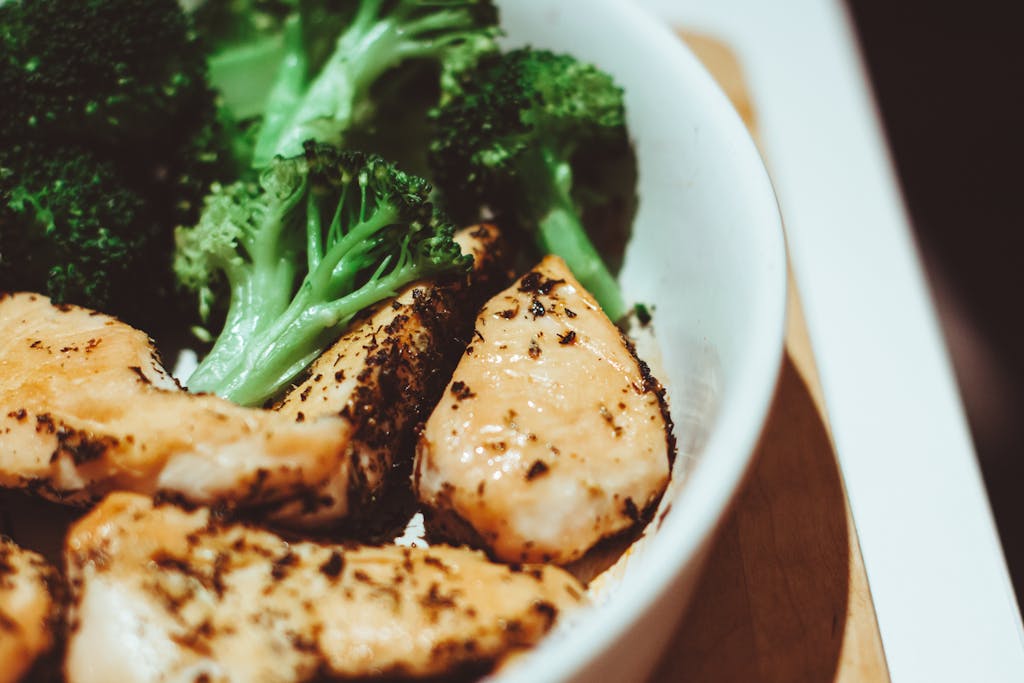Is Calorie Tracking Right For You? And Alternatives if Not
To track or not to track that is the question when it comes to calories! Ever feel like you’re doing everything right in your fitness journey, but you’re just not seeing the results you’re looking for? Or maybe you’ve seen people online talking about tracking macros or hitting their protein goals, but you have no idea what they’re talking about? In this blog, we dive into all things tracking such as, whether you should track your calories, the pros and cons of tracking, alternatives to tracking if it’s just not for you, and how to find balance if you choose to track.
What is Calorie Tracking
Calorie tracking is simply the process of logging the food and drinks you consume each day. Think of it like keeping a food diary, but instead of just noting what you eat, you’re also paying attention to the number of calories in each item.
When you track your calories, you record everything you eat and drink, along with their calorie counts. This helps you monitor your daily intake and see how it aligns with your fitness goals. Whether you’re aiming to lose weight, gain muscle, or maintain your current weight, understanding your caloric intake can be super helpful!
Calorie Tracking vs Macro Tracking
Macro tracking takes calorie tracking a step further by breaking down your intake into three main macronutrients: carbohydrates, proteins, and fats. Instead of just aiming for a calorie target, you aim to hit specific targets for each macro. This method can give you a more comprehensive understanding of your diet and help you optimize your nutrition for specific goals like muscle gain or fat loss.
Pros of Calorie Tracking
Some of the pros of tracking calories include:

Awareness: People have the tendency to overestimate or underestimate exactly how much they are eating. Tracking helps create awareness around your eating habits and how much or how little you actually consume in a day. You’d be surprised how quickly calories can add up. Don’t believe me? Try measuring out 2 tablespoons of peanut butter or an actual serving of your favorite cereal!
Accountability: Tracking calories can also help you stay accountable to your goals. If you know you have a specific caloric goal you are trying to reach, you are more likely to hit that goal when you have a record of how much you are eating.
Control: Tracking also gives you more control over what you’re eating. You can adjust your caloric needs based on your goals, seasons of life, or how you feel. You also realize no food is off limits, but you can make your favorite foods fit your caloric goal with proper portion sizes and moderation. This tends to make people feel less restricted while trying to establish healthier eating habits.
Cons of Calorie Tracking
While there are many benefits to tracking, there are also some cons. Tracking calories is definitely not for everyone, and it is truly a personal choice. A few cons include:
Time-Consuming: Tracking calories can be time consuming. In order to get an accurate measurement of your calories, you would ideally weigh your food using a food scale and then log the food using a food tracking calculator. This can be a tedious process.
Obsessive Behavior: Tracking calories can lead to obsessive behaviors, especially if you strive for perfectionism or have an all-or-nothing mindset. Trying to hit perfect numbers can become obsessive, which can lead to a poor relationship with food or feeling guilty when you don’t hit your caloric targets.
Accuracy: Sometimes food labels or tracking apps aren’t always accurate, or there will be times when your measurements may not be accurate. There’s always a margin of error when tracking.
Should You Track Your Calories?
The decision to track or not is a completely personal decision. When deciding whether to track, you should consider a few different factors:
Personal goals: If you have very specific goals, such as losing those last 5 pounds, gaining muscle, or training for a specific sport, tracking can be beneficial for all the reasons previously mentioned. However, if you are looking to live a generally healthy lifestyle or already have healthy eating habits, tracking may not be worth the extra effort. Alternatives to tracking may better fit your lifestyle.
How tracking fits into your life: Think about how tracking fits into your daily routine. For someone with a demanding job and family responsibilities, the extra time needed for detailed tracking might add extra stress which may not be worth it especially if you’re just someone trying to live a healthy lifestyle.
Mental health: It’s crucial to balance maintaining your physical and mental health. If tracking every bite makes you anxious or takes the joy out of eating, tracking is not for you. Or if you’re someone who has a history of disordered eating or a poor relationship with food, tracking calories is not the best route. Your mental health is just as important as your physical health.
Alternatives to Calorie Tracking
If the idea of logging every bite you take sounds daunting, you’re not alone. I get it! Fortunately, there are several effective alternatives to calorie tracking that can help you stay on track with your health goals.
Mindful Eating
Mindful eating involves paying attention to your body’s hunger and fullness signals. Instead of eating out of habit or emotion, you tune into your body’s needs. For example, before you eat, ask yourself if you’re truly hungry or if something else is driving your desire to eat, such as boredom. Eat undistracted, no TV, no computer, no phone. Take breaks while eating to check your hunger levels, and stop when you’re comfortably full.
Portion Control
Portion control is about understanding appropriate serving sizes and practicing moderation. By learning to eyeball portions, you can manage your intake without the need for constant logging. For example, use your hand as a guide: a serving of protein is about the size of your palm, a serving of carbs should fit in your cupped hand, and a serving of fats is roughly the size of your thumb.
Eat Whole Foods
Focusing on whole, nutrient-dense foods can help you eat within your caloric goals. These foods are typically lower in calories and higher in essential nutrients and fiber which naturally keeps you satiated and full for longer periods of time. Fill your plate with colorful vegetables, lean proteins, whole grains, and healthy fats.

Practical Tips if You Choose to Track
Start where you are: Rather than immediately trying to increase or decrease your calories, start by tracking a normal week of eating, whatever that looks like. Don’t try to be perfect. If you ate an entire sleeve of Oreos, track it! This allows you to get an idea of what your normal eating habits are. From there, see what small changes you can make. Instead of eating the entire sleeve of Oreos, maybe you have 3!
Make it easy on yourself: Use a food tracking app like MyFitness Pal that allows you to input your food and calculates calories and macros for you
Focus on hitting your protein goal: Instead of obsessing over every calorie and macro, start by setting a protein goal, and trying to hit that goal. For help determining your protein intake and suggestions on how to hit it, check out this post next: How to Hit Your Daily Protein Intake to Reach Your Fitness Goals
Be flexible: Every day is not going to be perfect, and you do not have to hit every number exactly. Remember, food is energy! We need calories to function and fuel our bodies. Eating should be enjoyable, not stressful.
Set realistic goals: Never drastically decrease your calorie intake. Remember, small steps lead to sustainable habits.
Track Temporarily: Tracking does not have to be a forever thing. It can just be a tool that you use to gain awareness of your eating habits and proper portion sizes. Once you feel like you have an idea of how things are going, transition to more of an intuitive eating approach.
Find What Works For You!
It is important to find a method that aligns with your lifestyle and makes you feel good about your eating habits. Mindful eating, portion control, and prioritizing whole foods can all be effective strategies for achieving your health goals without the need for detailed calorie or macro tracking.
Remember, the key is sustainability. Choose an approach that you can maintain long-term, and don’t be afraid to adjust as needed. Your journey to better health is personal, and finding what works best for you is a big part of that journey.






